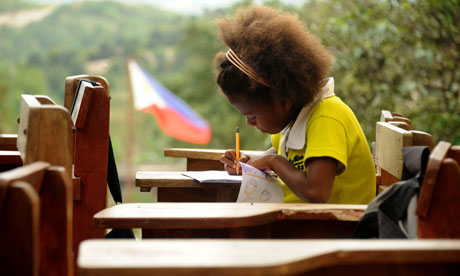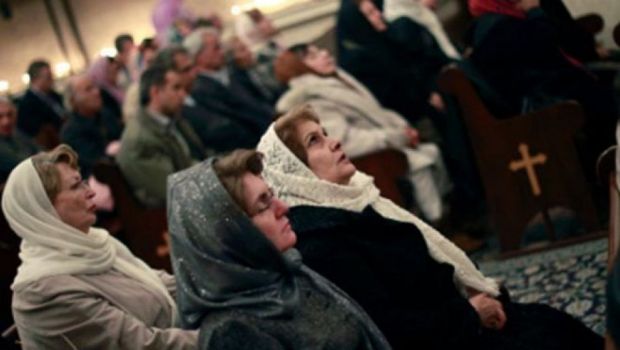As talks over replacing the millennium development goals gather pace, equality and peacebuilding communities should join forces

Progress on the millennium development goals (MDGs) for women and girls is disappointing, with efforts to improve maternal health among the most off track.
Gender parity in primary school enrolment is close to being achieved, but among the other goals, lack of adequate data makes it difficult to assess whether women and girls are truly benefiting. What is clear is that countries affected by conflict and widespread violence are among the furthest from achieving any of the goals.
As the debate on what to replace the MDGs with after 2015 gathers pace, there are continued calls for gender equality to be central to the framework.
Gender and peace are closely linked: peace is vital to promote gender equality, while gender inequality can also undermine peace and drive conflict and violence. This is one of the key messages in a new briefing,Gender, violence and peace: a post-2015 development agenda, published by Conciliation Resources and Saferworld.
A number of studies have found a strong correlation between levels of conflict and gender inequality, but the nature of this relationship is not always clear. Does violence fuel gender inequality, or gender inequality fuel violence, or both? In some cases, women advance their strategic interests during times of conflict, but this is often followed by the restoration of more unequal gender roles afterwards. In many of the countries that have experienced revolutions during the Arab spring, increased opportunities for women’s political activism have been coupled with a violent backlash against women trying to claim their rights.
Conflict and violence have to date been the most important factors obstructing progress on the MDGs. In 2008, the eight African countries with the highest maternal mortality ratios were experiencing or emerging from conflict. As well as causing death, injury and displacement, conflict destroys infrastructure, disrupts markets and social ties, diminishes the capacity of states, and diverts vital resources away from development.
The UN secretary-general, Ban Ki-moon, recently observed that countries experiencing conflict and fragility face most difficulty in achieving the MDGs for women and girls because violence reduces their access to healthcare and welfare services, economic opportunities and political participation.
Whether gender inequality has an impact on conflict is harder to determine, but there is strong evidence that the gender norms that underpin inequality can drive conflict and violence, particularly when cultural notions of masculinity are associated with domination and control.
Research by Saferworld and others in South Sudan reveals that participation in violent cattle raids, which perpetuates conflict between communities, is seen as a rite of passage for young men. The bride price system, in which cattle are exchanged for girls and women, makes violent cycles of abduction and revenge worse. As a result, the Organisation for Economic Co-operation and Development (OECD) argues that addressing gender norms in South Sudan is crucial to addressing the causes of conflict.
What does all of this mean for discussions about the post-2015 agenda? Those calling for strong commitments on gender equality in the new framework should consider the importance of peace and non-violence in promoting it. As Saferworld and others have argued, including targets that address the most important drivers of conflict can help to ensure that men and women living in countries vulnerable to violence are not left behind.
Those advocating for peacebuilding commitments in the post-2015 framework would do well to apply a gender perspective to their thinking. A standalone goal on gender equality and women’s rights can contribute towards peace, particularly if it addresses relevant discriminatory attitudes and social norms. Targets should address the forms of violence that most often affect women as well as men, and commitments on inclusive governance should aim to boost the participation of women and other marginalised groups in decision-making. Saferworld’s briefingsuggests example targets and indicators to these ends.
Next week, UN member states will meet in New York for the annual commission on the status of women, and negotiations have the potential to demonstrate international commitment to making gender equality a key priority for the post-2015 framework. It is vital that member states recognise the importance of overcoming conflict and violence in doing so. Saferworld hopes that those in the women’s rights and peacebuilding communities can work together to demonstrate the links between their aims, so the chances of securing strong commitments in both areas are increased.
Link for this article: http://www.theguardian.com/global-development/poverty-matters/2014/mar/03/equality-peace-millennium-development-goals-2015-agenda







